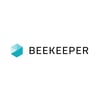2019 will be a year for IT to uphold international security compliance across all digital properties and tools
Excerpt from Beekeeper's Hospitality Industry Trends For 2019


From the rampant adoption of mobile internal communications tools to artificial intelligence to the Internet of Things, IT departments across the hospitality landscape should prepare to see some big shake-ups in their lineup. In addition to innovative gadgets and software, 2019 will also be a year for IT to uphold international security compliance across all digital properties and tools.
Increased Security and Confidentiality
As the EU puts GDPR into effect this May, ensuring the security of your internal communications channels will be more than just a trend in 2019—it will be an absolute necessity. Adopting a private platform for internal messaging will help employees discreetly convey necessary information amongst themselves without unnecessarily involving guests. As nowadays these sensitive messages can take many mediums (email, direct message, video, image, etc.), adopting a platform that can support a variety of media formats will be important in the coming year.
With a secure chat tool in place, any confidential company or HR information will remain protected. While corporations can establish confidential communication solutions within internal apps, they can also document employee activity and collaboration for posterity. For teams that work in customer service, this can prove invaluable as information is readily accessible yet discreet should employees require it.
Smart Rooms
With more people using voice-activated devices in their homes, it's only natural to use these same devices to make rooms more "smart." In 2019, IT departments should anticipate the adoption of technologies that allow guests to control lights, temperature, and other features in a hotel room can be difficult to decipher.
Adding a voice-activated device like a Google Home or Amazon Echo can eliminate the risk of a poor Yelp rating or a middle-of-the-night complaint to the front desk. The guest can control specific functions of the room, just like at home.
According to The Wynn Las Vegas, over 4,700 of their rooms will be equipped with an Amazon Echo to help guests control things like lighting and temperature with ease. Don't be surprised if you start seeing rooms with "smart" beds that can determine whether or not a guest is asleep or awake and heat or light a room accordingly.
BYOD (Bring Your Own Device) Programs
With the rise of mobile communication apps for the workplace comes the expectation that messages will be responded to in real time, or at the very least, in a timely manner. While it is up to your company to establish rules of engagement so that employees don't burn out or rack up overtime while dealing with off-the-clock internal communications, it's also important to make the digital workplace app as accessible to all employees as possible. For many, this means using whatever mobile phone is in their possession. In the coming year, it will be of critical importance to ensure that your digital workplace provider can function on a wide variety of devices.
An Increase in AI Presence
Depending on who you talk to, artificial intelligence (AI) is either met with excitement or skepticism and worry. While there are many industries that will eventually be dominated by AI, the hospitality industry isn't likely to go full-automation in 2019, or ever for that matter.
With that said, many businesses within the hospitality industry have begun to incorporate some friendly robots to help out with some of the house keeping and other tasks that don't require a lot of face-to-face interaction. AI will ultimately help the guest experience by improving the quality of any person-to-person exchanges.
Automation is not meant to threaten a booming industry but rather keep it streamlined, error-free, and maintain high standards in what it does best; striving to make the customer experience as impeccable as possible.
